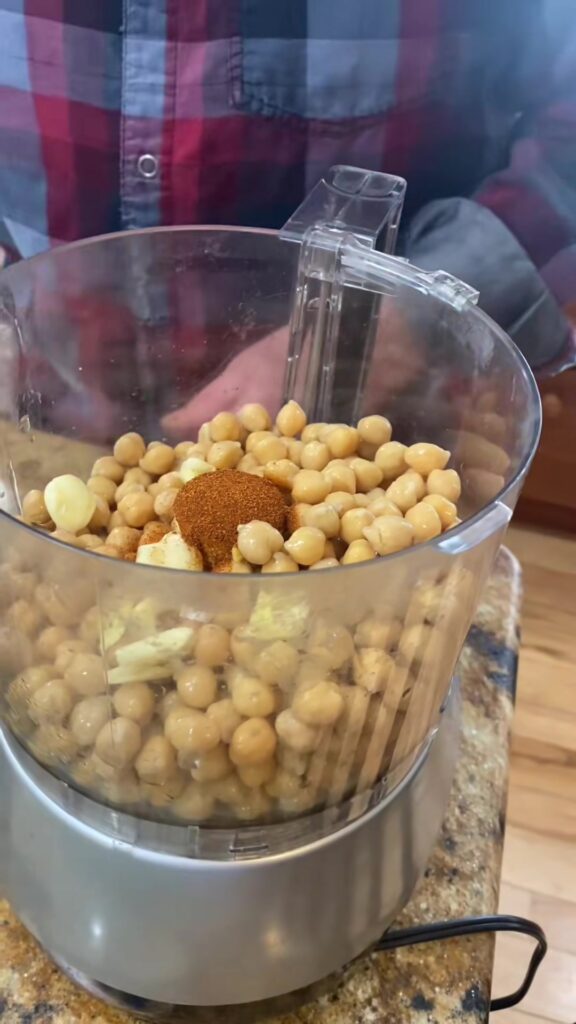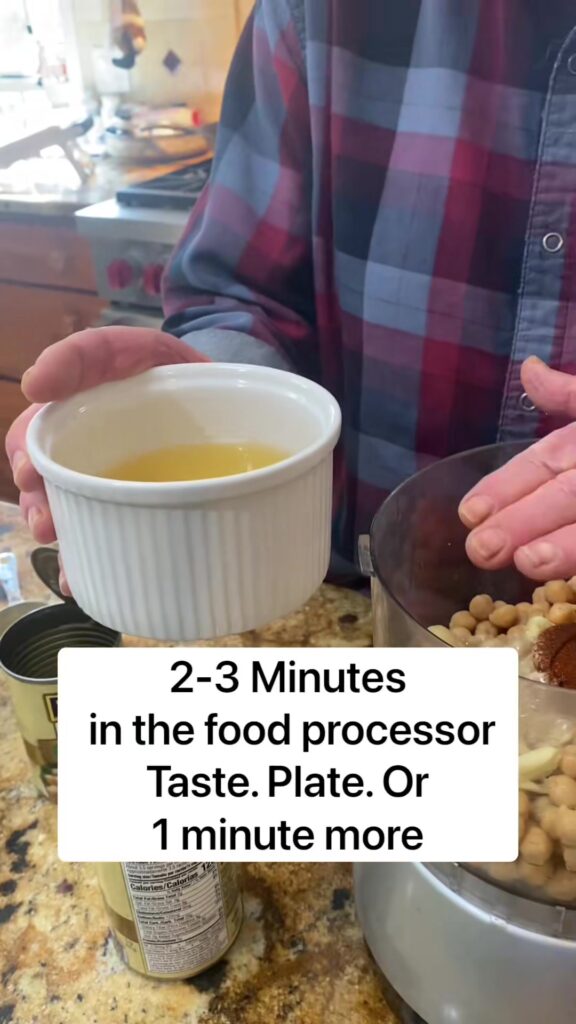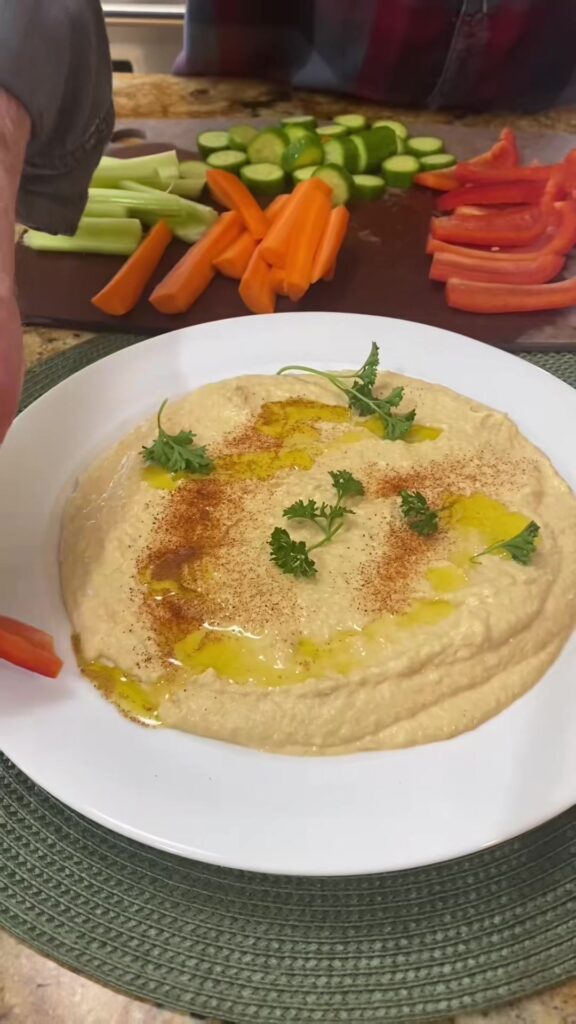
Plant Proteins on a Plate AKA Hummus
In the world of plant-based nutrition, few foods are as versatile, delicious, and protein-packed as hummus. This creamy Middle Eastern spread, made primarily from chickpeas (garbanzo beans), is not just a dip—it’s a powerhouse of nutrients that can elevate any meal. Whether you’re vegan, vegetarian, or simply looking to incorporate more plant proteins into your diet, hummus is a must-have staple. Let’s explore why hummus deserves a permanent spot on your plate and how to enjoy it beyond the usual pita bread.
Why Hummus is a Protein Superstar
Hummus is a fantastic source of plant-based protein, thanks to its main ingredient: chickpeas. A single cup of cooked chickpeas contains about 15 grams of protein, along with fiber, iron, folate, and healthy fats from tahini (sesame seed paste). Unlike animal proteins, hummus provides a balanced mix of macronutrients without cholesterol or saturated fat.
Nutritional Benefits of Hummus:
✔ Supports muscle repair & energy (complete protein when paired with whole grains)
✔ Promotes gut health (high in fiber for digestion)
✔ Rich in heart-healthy fats (thanks to olive oil and tahini)
✔ Packed with vitamins & minerals (iron, magnesium, B6)
Classic Hummus Recipe (5-Minute Version)
Ingredients:
- 1 can (15 oz) chickpeas, drained (reserve liquid)
- ¼ cup tahini
- 2 tbsp extra-virgin olive oil
- 1 garlic clove (or ½ tsp garlic powder)
- 2 tbsp lemon juice
- ½ tsp cumin
- ½ tsp salt
- 2-3 tbsp aquafaba (chickpea liquid) or water for creaminess
Instructions:
- Blend: Combine all ingredients in a food processor.
- Adjust: Add aquafaba or water until smooth.
- Serve: Drizzle with olive oil & sprinkle paprika or parsley.
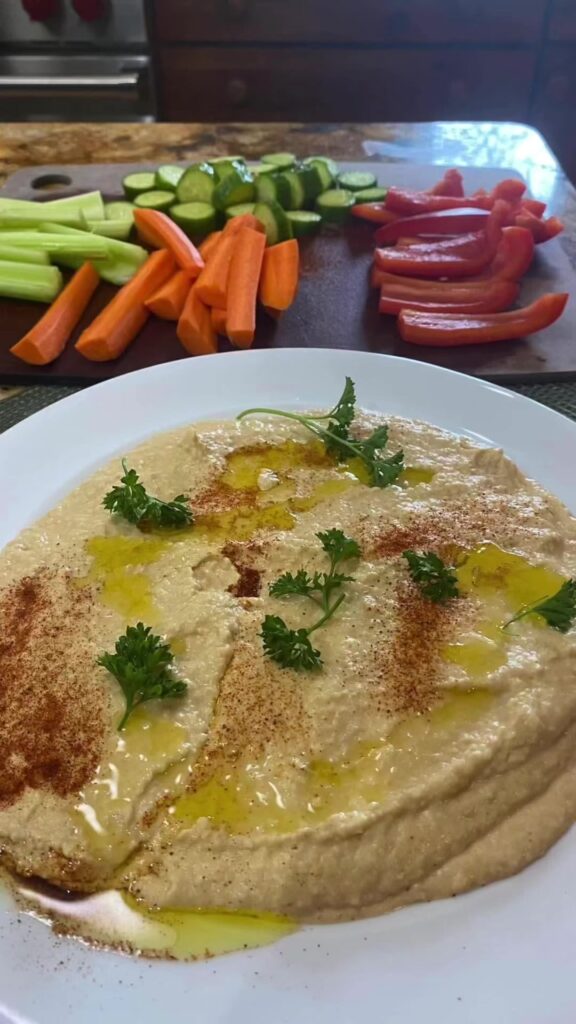
Beyond the Dip: Creative Ways to Eat Hummus
Hummus is incredibly versatile—here’s how to make it a meal:
1. Hummus Bowls
- Base: Quinoa or greens
- Toppings: Roasted veggies, olives, cucumber, falafel
- Dressing: Extra hummus thinned with lemon juice
2. Hummus Toast
- Swap avocado toast for hummus topped with cherry tomatoes, hemp seeds, and chili flakes.
3. Protein-Packed Wraps
- Spread hummus on a whole-wheat tortilla, add grilled tofu, spinach, and shredded carrots.
4. Creamy Pasta Sauce
- Thin hummus with pasta water for a dairy-free Alfredo alternative.
5. Stuffed Veggies
- Fill bell peppers or zucchini boats with hummus and bake.

Flavor Variations to Try
- Roasted Red Pepper Hummus – Add ½ cup roasted peppers.
- Spicy Harissa Hummus – Mix in 1 tbsp harissa paste.
- Beet Hummus – Blend in 1 small cooked beet for vibrant color.

Why Choose Homemade Over Store-Bought?
While store-bought hummus is convenient, homemade versions:
- Contain no preservatives
- Allow flavor customization
- Are often creamier & fresher
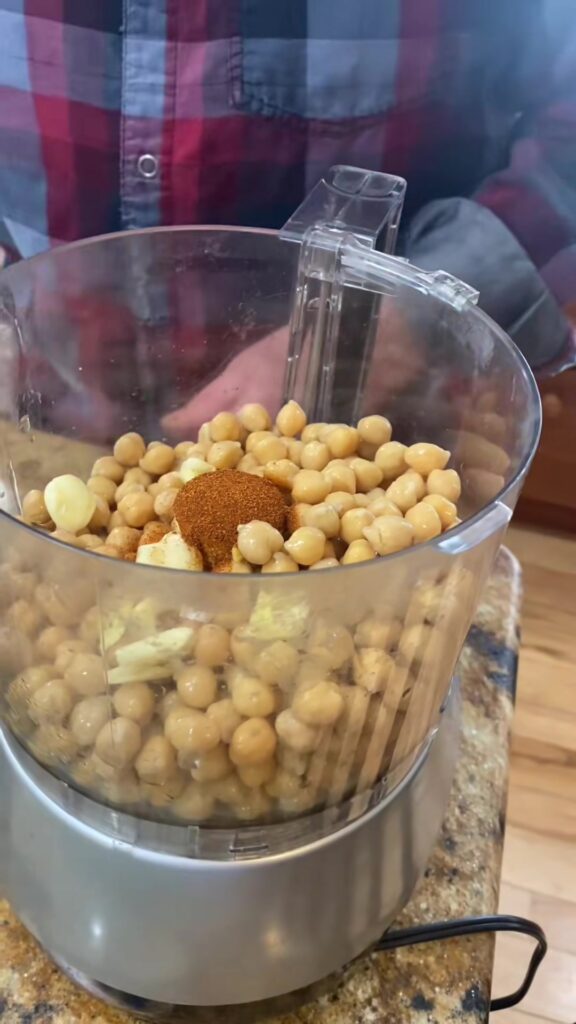
Final Thoughts
Hummus is more than just a snack—it’s a nutrient-dense, protein-rich food that can transform simple ingredients into satisfying meals. Whether you enjoy it as a dip, spread, or sauce, this plant-based staple proves that eating healthy doesn’t mean sacrificing flavor.
Ready to upgrade your plate? Whip up a batch today! 🥙✨
Do you have a favorite hummus hack? Share in the comments!
